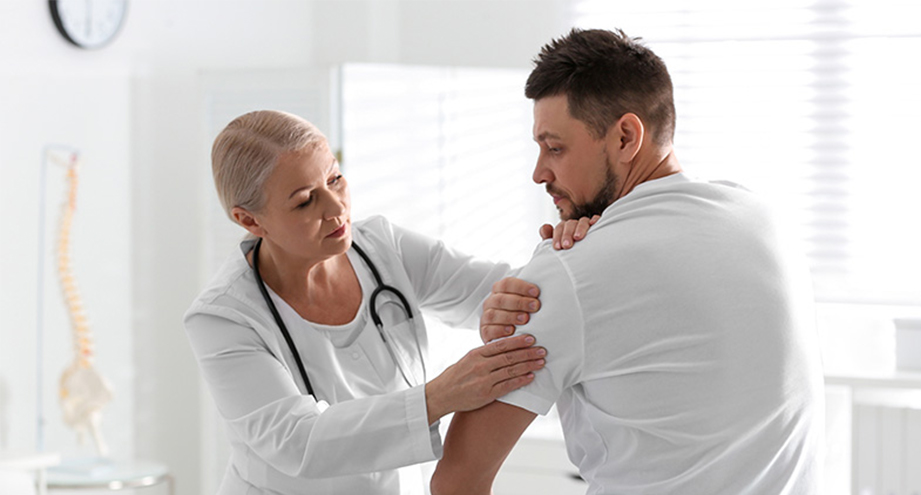
Understanding Rotator Cuff Injuries and Potential Treatments
The rotator cuff is located in the shoulder joint and its movement is controlled by four muscles and tendons. Working together they manage the movement and rotation of your arm and shoulder. As you age, you become more susceptible to partial or full thickness tears as well as tendonitis – inflammation of the tendon. If daily activities or one’s occupation involves overhead movements or heavy lifting, they may be more susceptible to this kind of injury.
Wear and tear, trauma, repetitive stress, pulling and lifting, and poor posture are all potential reasons you may feel pain in this specific joint. When traumatic injury occurs, immediate sense of weakness or pain can be felt and directly impact your range of motion. You may have symptoms such as:
- Deep ache in the shoulder or in your deltoid muscle
- Pain within the joint when trying sleep at night
- Weakness and limited range of motion or shoulder stiffness
Rotator Cuff Treatment
Non-Surgical Treatments
Rest of the injured joint is the first step to controlling swelling and pain. While a sling may be beneficial to remind yourself and let others know, it is important to maintain a range of motion to prevent stiffness. Complete immobilization can lead to a painful condition called frozen shoulder. Loss of range of motion will make activities of daily living more strenuous and painful. Icing the joint can help reduce swelling and pain, and after 24 hours heat compresses may help. Using Anti-inflammatories like ibuprofen (Advil) or naproxen (Aleve) may also help. Physical therapy, gentle exercises, and stretches can be helpful to strengthen the muscles around your injury. In some cases, steroid injections can be given to reduce inflammation and pain.
Surgical Treatment
When non-operative treatment fails, or in certain cases of acute injuries or full-thickness rotator cuff tears, surgery may be recommended. At Precision Orthopedics, most rotator cuff tears are repaired using arthroscopic surgery. Arthroscopic surgery is a minimally invasive technique using small access portals around the shoulder. This technique still allows the surgeon to visualize and access the pathology in the shoulder. Precision Orthopedic physicians excel at performing these procedures which can lead to quicker and easier recovery for our patients. For certain types of complex rotator cuff tears, our shoulder specialists utilize the latest surgical techniques, including superior capsule reconstruction and reverse total shoulder arthroplasty.
Rotator Cuff Surgery Recovery
After rotator cuff surgery, patients go home the same day and wear a sling to protect the repair. Specific post-operative instructions are given at the time of surgery detailing any specific considerations. Physical therapy plays a critical role in the recovery process to restore strength and range of motion and may start within the first few days post-operatively or after a couple of weeks. The shoulder will likely be uncomfortable the first few days, and this is managed with ice, pain medications, and sleeping propped up on pillows or in a recliner. Often a nerve block is performed by the anesthesiologist at the time of surgery which provides pain relief throughout the day. Follow-up in the office is usually 2 weeks after surgery and plans for further recovery are discussed.
